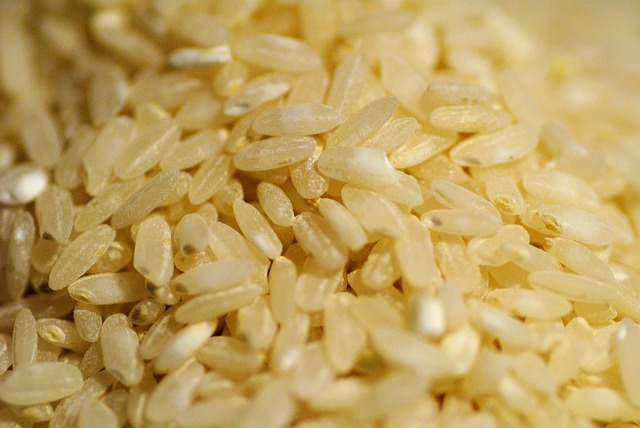What is a plant-based diet and why should you try it?
A plant-based diet includes many different kinds of food - including fruits, vegetables, nuts, seed, whole grains, legumes, beans, and other healthy foods.
The health benefits of eating a plant-based diet are numerous. For example, research suggests that a plant-based diet could reduce your risk of heart disease, cancer, diabetes, stroke, obesity, and some types of dementia.
Not only does a plant-based diet help you live longer, but it helps protect our planet too. By reducing the amount of greenhouse gas emissions we produce, a plant-based diet can make a difference in reducing our environmental impact too.
While most people know what veganism and vegetarian foods are, flexitarianism might be less familiar.
This type of diet allows you to eat mostly plants, while still eating some animal products like meat, eggs and dairy. This article shines light on how this may not be very helpful to you as an individual, even in the long run.
Health benefits
Eating flexitarian may provide several health benefits. A recent study found that people who eat less red meat are less likely to die early.
Another study showed that vegetarians had lower blood pressure and cholesterol levels than omnivores.
And a third study suggests that meat eaters who reduce their intake of animal products tend to live longer.
But there are some downsides to reducing as opposed to cutting out meat. It may be more difficult, may not give you the results you're looking for, and may not be sustainable in the long term.
The bottom line? If you want to improve your health, consider adopting a whole food plant based diet.
Lower Cancer Risk
It turns out that vegans have a lower risk of developing certain cancers compared to non-vegetarians.
One study found that vegans were about half as likely to develop prostate cancer as those who ate meat regularly. Another study found that vegans had a lower risk of breast cancer.
Vegan diets also appear to have lower colon cancer risk.
In fact, the WHO has classified processed meat as a Group I Carcinogen, which means we know for sure it causes cancer.
Better weight management
A whole food, plant based (WFPB) diet may better for body weight management than a calorie restricted diet.
Researchers found that compared to people following a low-calorie diet, people eating plant-based diets seemed to enjoy the same weight loss benefits. People following a plant-based eating pattern also reported feeling fuller longer, having fewer cravings, and experiencing greater satiety.
Even calorie dense whole plant foods like nut butter don't seem to contribute to weight gain due to their fiber and phytonutrient content.
Some condiments like nutritional yeast could even accelerate your metabolic rate and support weight loss.
Eating more plant-based food is great, and cutting out animal foods completely could give you even greater benefits in maintaining your ideal body mass index (BMI)
Lower risk of heart disease
Middle age is associated with an increase in the risk of developing coronary artery disease.
But it seems that young adults are also facing a rise in coronary artery disease.
Researchers believe that this could be due to unhealthy diets among young adults.
They found that a healthy diet reduces the risk of coronary artery disease and therefore recommend that everyone shift to a plant-based eating pattern and eat five portions of fruit and vegetables every day.
The Adventist Health Study II showed that people eating vegetarian diets have a lower prevalence of type 2 diabetes and hypertension than non-vegetarians, but vegans seemed to enjoy the greatest health.
Because heart disease is the leading cause of death in India, this may be at the top of the list of benefits of plant based nutrition.
Diabetes prevention and treatment
Patients with pre-diabetes often have impaired fasting glucose or impaired glucose tolerance. These conditions are considered early signs of type 2 diabetes.
People who eat a vegan diet are less likely to develop type 2 diabetes than people who don't, according to the latest research.
Researchers also noted that vegans tended to weigh less than those who ate meat, eggs, dairy products, fish, shellfish, poultry, or processed foods, which reduces risk of diabetes.
A vegan diet can improve blood glucose levels.
In one study, researchers gave healthy volunteers either a low-fat vegan diet or a high-fat omnivorous diet for three weeks. Blood samples taken during the experiment showed that the subjects eating a vegan diet had better insulin sensitivity and improved blood glucose control.
Because the root cause of diabetes is saturated fat accumulation in muscles and liver (intramyocellular and intrahepatocellular lipid accumulation), even a high-carb plant-based diet including whole plant foods like sweet potato, beetroot, apples, and brown rice may actually be diabetes friendly.
Another common misconception is that the benefit of vegan diet in diabetes is only due to weight loss.
Doctors could recommend a plant based dietary pattern to patients with pre-diabetes or type 2 diabetes regardless of whether they wanted to lose weight or not.
Even when you eat so much fruits and vegetables that you don't lose any weight, your blood sugar levels still improve!
Based on a study of 89,000 Californians, flexitarians (who eat meat maybe once weekly rather than daily) appear to cut their risk of diabetes by 28 percent, and those who cut out all meat except fish appear to cut their rates in half.
In addition to helping prevent type 2 diabetes, a vegan diet can help reduce cardiovascular disease risks. One recent study found that vegans had lower cholesterol levels than meat-eating participants. Another study found that vegans consumed fewer calories per day and weighed less than those who ate animal products. Both studies concluded that a vegan diet can contribute to a healthier lifestyle overall.
High Blood Pressure
The largest study so far of people eating vegan diets, the Adventist Health Study II, studied 89,000 California residents. The study assessed:
- Non-vegetarians
- Semi - vegetarians or flexitarians - those who ate meat once or twice a week
- Pesco-vegetarians - those who ate fish by no other meat
- Lacto-ovo-vegetarians - those who ate eggs and dairy products, but no meat (the typical vegetarian diet)
- Vegans - those who are no meat, eggs, or dairy foods
The subjects were Seventh Day Adventists. These people ate lots of fruit and vegetables, exercised, and did not smoke. Even the non-vegetarians did not eat a lot of meat or other animal foods.
So, even among people following 'healthy' lifestyles, the risk of high BP dropped step by step, the more plant-based their diet.
Researchers found the same for risk of type 2 diabetes and obesity.
So, any change you make towards healthy eating can be beneficial, and big changes give you big results.
Mortality
Vegetarian diets are known to reduce cholesterol levels and improve cardiovascular health. But does vegetarianism actually prolong life?
The National Institutes of Health-AARP study is the largest forward-looking study of diet and health ever conducted.
What did it find?
Meat intake increases total mortality, cancer mortality, and cardiovascular mortality.
Kidney health
The kidneys are the most important organ system in our bodies that is involved with filtering out waste products from blood and making urine. They also produce hormones and regulate our blood pressure.
Meat causes kidney inflammation, leading over time to chronic kidney disease.
This happens because of the sources of protein. Animal protein causes renal inflammation, while plant-based sources of protein appear to be protective.
For example, almond milk seems to be healthier than dairy milk, both for kidney health as well as lowering cancer risk.
Reducing meat consumption may help, but it does not eliminate the risk entirely. Eating red meat every day leads to increased levels of inflammatory markers in the blood, even if you don't consume much meat overall.
Because kidney damage is proportional to intake of animal protein, even lean protein causes kidney damage.
Research has shown that meat and dairy foods are especially harmful when protein intake exceeds 1.2 grams of protein per kg healthy body weight.
Chronic kidney disease can lead to needing dialysis or a transplant to replace the damaged kidneys. Avoiding consumption of meat and replacing it with plant foods as your sources of protein, like black beans, legumes, and lentils (but not refined grains) may prevent this type of damage altogether.
Choose plant protein, not lean protein.
Low meat vs. no meat: Which is better?
The idea behind a vegan diet is simple: it doesn't contain animal products.
However, there are many different types of plant-based diets out there.
Some eat nothing but plant foods while others eat some dairy and eggs.
What does the research show?
Eating less meat and more plant foods has been shown to lower the risk of heart disease, stroke, diabetes, certain cancers, and death.
Eliminating meat consumption and eating only plant foods has been shown to lower risks of chronic disease even further!
If you still want to enjoy the taste of meat without the chronic disease risk that comes with it, choose plant-based meat alternatives like soy-based “healthy” processed foods, mock meats, raw jackfruit and yam. Choose a bean burger instead of a hamburger. Try one week of meat meals made with plant-based meat and get started with new healthy eating habits.
Are There Any Drawbacks to the Flexitarian Diet?
When I talk about flexitarians, I talk about people who eat some meat, fish, dairy, and eggs while still trying to cut down on processed food and sugar. But there are drawbacks to the flexitarian diet. In fact, there are many reasons why it might not work for you.
You may have been told that moderation is key.
Research reveals that this may not be true. In reality, Big Changes give Big Results!
Here are 3 drawbacks to the Flexitarian Diet:
1. Moderation is more challenging than abstinence.
Think of an alcoholic - it's easier to avoid alcohol than limit its consumption.
Avoiding animal-based foodsis easier than eating less of them.
2. You get better results if you abstain from unhealthy foods altogether.
You have read throughout this article about how clinical trials have shown that big dietary changes can give you better results, whether it is weight loss, risk of type 2 diabetes or risk of cancer.
3. You may be unable to follow it sustainably for longer periods of time.
It is much more sustainable to follow a habit that is easier and gives you better results - in this case, a whole food plant based diet rather than a flexitarian diet.

Plant Based Diet With Meat or Without Meat - the Bottom Line
I hope you now understand the differences between these two diets.
Flexitarian diets come with benefits for sure. It seems more acceptable to eat animal products in moderation than give them up completely.
But if you want to lose weight, keep it off, reduce your risk of chronic diseases, improve your health, and reduce your environmental impact, then you should consider adopting a 100 Percent Plant Based Diet.
You can get my free ebook on how to cook 100+ Whole Food Plant Based Recipes for FREE now!
If you're ready to make the shift, there is a fantastic Plant-based Diet Masterclass you can check out on NutritionScience.in
In case you haven't yet, you can even get a Plant-based Meal or Goodies delivered to your doorstep and personally experience how it feels today!
Dr Achyuthan Eswar
Co-founder,
NutritionScience.in Online Learning Platform &
SampoornaAhara.com Whole Food Plant Based Social Enterprise
Next Steps
Instant Plant-Based Meals Delivery in Bangalore
Diabetes Diet and High BP Diet
Sourdough and Wholegrain Breads
Online Consultation with Dr. Achyuthan Eswar
Freedom From Diabetes Online Induction Program
FREE Whole Food Plant-Based Diet for Beginners
Plant Based Diet Masterclass by Dr. Achyuthan Eswar
Whole Food Plant Based Recipes
Whole Food Plant Based Recipes for Sankaranti eBook PDF Free
Whole Food Plant Based Diet - The Ultimate Beginner's Guide
Peanut-Free and Gluten-Free Products



